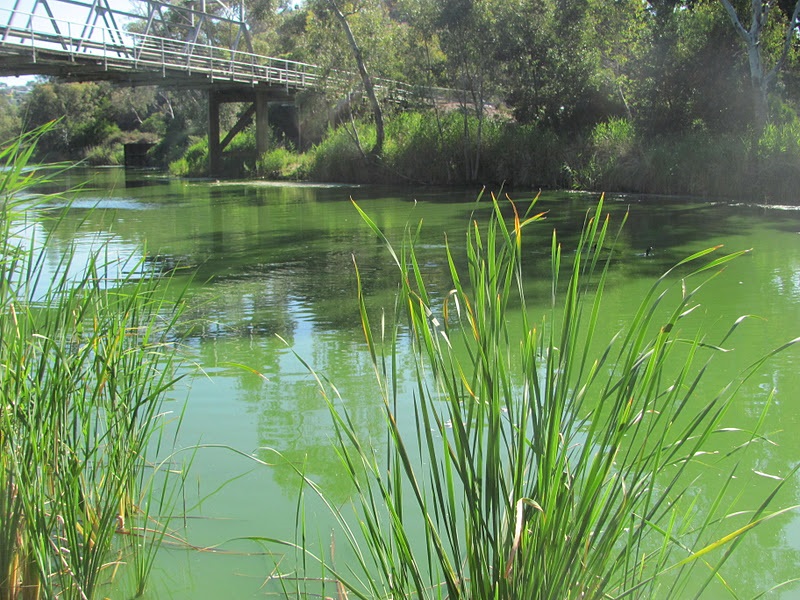Direct contact with blue-green algae can cause allergic reactions such as skin rashes or itchiness; sore eyes ears and nose or if swallowed gastroenteritis, nausea or vomiting.
People who come in to contact with contaminated water should wash immediately in fresh water. Seek medical advice if experiencing illness after contact with BGA affected water.
Pet owners should prevent pets from drinking or having direct contact with contaminated water. Blue-green algae can be toxic to pets. Call your vet immediately if you suspect poisoning.
Irrigators are encouraged to take extra care to avoid spray drift, the pooling of water and inhaling mist from blue-green alsae affected water. Affected water should not be sprayed onto leafy vegetables or, florets or allowed to flood pastures.

